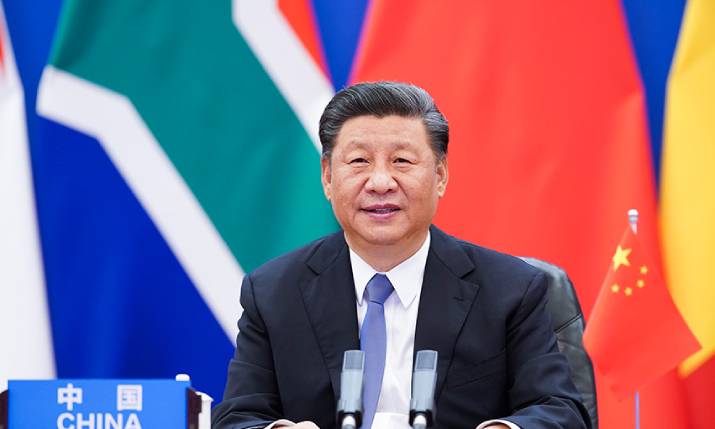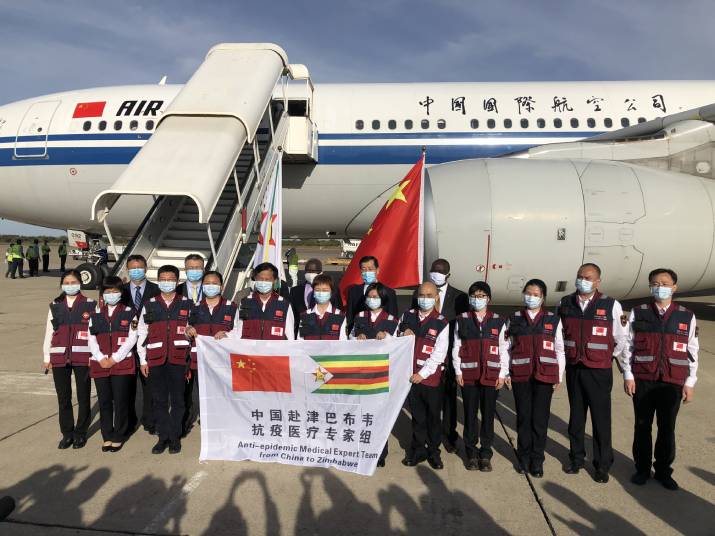| China and African countries have withstood the severe test of the pandemic and have taken practical actions under the principle of "China-Africa community with a shared future" to jointly fight the virus |
| By Guo Jia ChinAfrica ·2020-07-09 |

Chinese President Xi
Chinese President Xi
Over the past months, China and African countries have withstood the severe test of the pandemic and have taken practical actions under the principle of "China-Africa community with a shared future" to jointly fight the virus.
While China has essentially contained the spread of the virus and African countries have achieved significant results in combating the pandemic, they still face several threats in dealing with the virus. The summit is a morale booster for China-Africa anti-pandemic cooperation, which injects confidence, highlights the brotherhood between China and Africa, and sends important messages.
Enhancing health cooperation
In May, at the opening of the 73rd World Health Assembly, President Xi announced five concrete measures to boost the global fight against COVID-19, among which, he laid special emphasis on supporting Africa in combating the pandemic.
At the Extraordinary China-Africa Summit,
China-Africa health cooperation has a history of 57 years, and the Chinese medical teams to Africa, covering 47 countries, have played an especially important role in improving the overall medical and health standards of African countries.
In the battle against COVID-19, China and African countries supported each other to overcome difficulties. During the most difficult period in China's fight against COVID-19, African countries provided China with valuable support, which will be engraved in the hearts of the Chinese people. Since the spread of COVID-19 to Africa, China also reached out to Africa at the very beginning, deploying 148 medical staff to 11 African countries to share experiences. More than 40 Chinese medical teams aiding Africa have organized over 400 training sessions for local medical staff.
China-Africa cooperation in combating the COVID-19 is not an isolated event, but is part of a long history of China-Africa health cooperation, and its effectiveness is also based on the existing cooperation.
In his speech, President Xi pointed out that

A 12-member Chinese medical team from central China's Hunan Province arrives in Zimbabwe to fight against COVID-19 on May 12 (COURTESY)
Sustainable development
China is not only concerned about Africa's current pandemic situation, but also African countries' economic recovery and long-term planning in the post-epidemic era. According to President Xi,
Within the FOCAC framework, China will cancel the debt of relevant African countries in the form of interest-free government loans that are due to mature by the end of 2020.
As for the
China's commitment to reducing African debt is the most tangible help to African countries. It will ease the impact of the pandemic on the African economy and contribute to
In addition, with the aim to help
Upholding equity and justice
At the summit, President Xi said China will stay committed to upholding multilateralism. In the face of COVID-19, solidarity and cooperation is our most powerful weapon. China will work with Africa to uphold the UN-centered global governance system and support the World Health Organization in making greater contribution to the global COVID-19 response. The country opposes politicization and stigmatization of COVID-19, and decries racial discrimination and ideological bias.
Facts show that strengthening solidarity and cooperation is necessary to face a global public health crisis. No country could tackle this pandemic alone, and the international community needs to be united more than ever.
In all, the summit is of special significance as the pandemic continues to spread. In the short term, it will inject confidence and strength into the global fight against the pandemic and set an example for jointly coping with global health challenges under the new situation. In the long run, China-Africa solidarity will help enhance the influence and voice of developing countries in the field of global health, promote the utilization of international health resources in a more just and reasonable way, and safeguard the common interests of developing countries.
The author is an assistant research fellow of Institute of West Asian and African Studies, Chinese Academy of Social Sciences (China-Africa Institute)